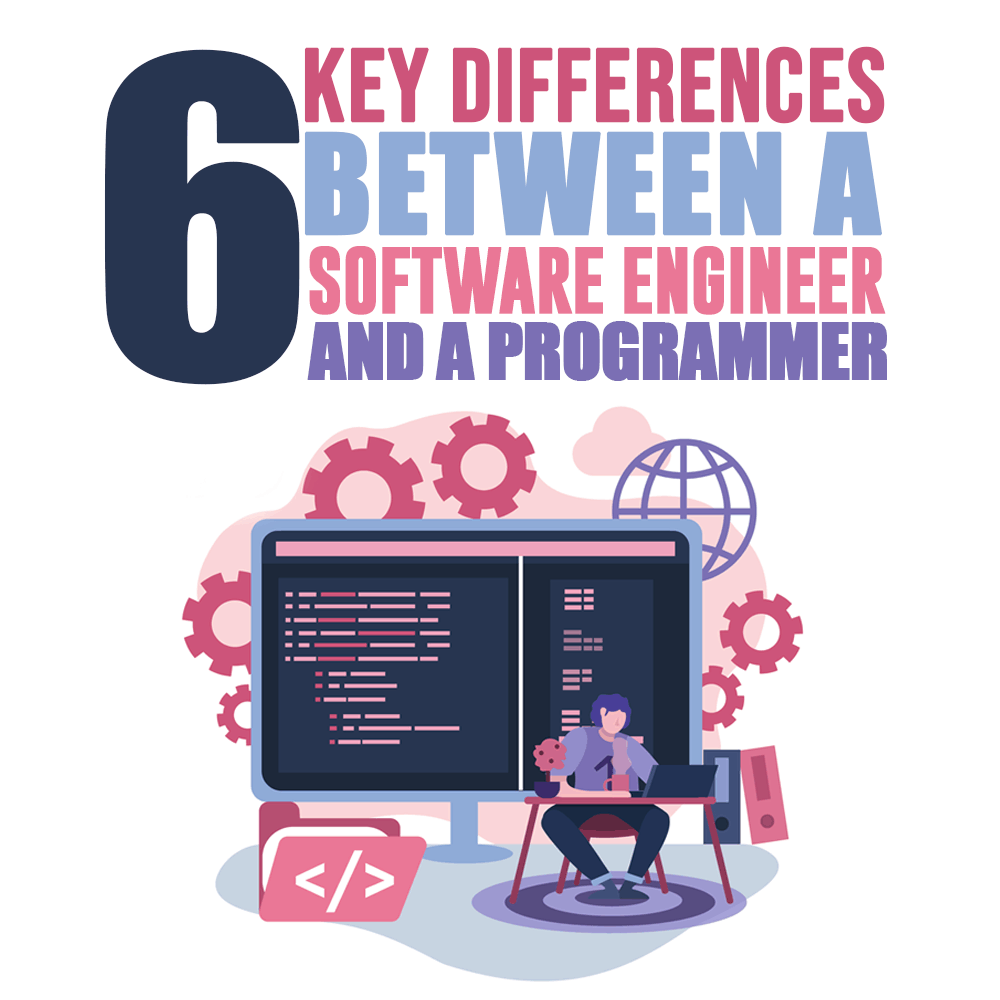 Recruiters are always on the hunt for strong tech candidates. With a 1.3% unemployment rate in the industry, they still intend to hire and retain deserving candidates. However, as a recruiter, it is significant to know exactly what you need in a candidate to hire the right people.
Recruiters are always on the hunt for strong tech candidates. With a 1.3% unemployment rate in the industry, they still intend to hire and retain deserving candidates. However, as a recruiter, it is significant to know exactly what you need in a candidate to hire the right people.
For instance, there is a high demand for software engineers in the industry, but their job role is often a combination of a developer and a programmer. Based on what role employers need candidates for, recruiters need to know the key differences between these two profiles.
For that, you will have to learn more about their individual roles.
Role of a Programmer
A computer programmer is commonly referred to as simply a programmer. They are software contractors that develop different types of software and programs. They are also responsible for following the guidelines of software engineers. They can sometimes also be called developers or coders because their primary task is to write, evaluate, and edit lines of code.
- Specialty: Programmers focus on one component at a time and are involved in a single stage of the development life cycle. Programmers must be capable of writing code and identifying/debugging errors. This is why they specialize in only a few specific programming languages.
- Expertise: The trend of coding boot camps has resulted in programmers developing the art of self-learning either in computer or information science. This industry offers more significance to experience than knowledge; hence, a programmer with experience is likely to acquire an upper hand.
- Algorithms: Programmers work independently and build the system block by block. A programmer who possesses strong technical skills and an ability to design and understand algorithms is seen as the most suitable candidate.
Eventually, the programmer is responsible for following guidelines for framework and coding provided by the software engineer.
Role of a Software Engineer
Software engineers are often referred to as developers, but as a tech recruiter, you must know the difference between developers and engineers. There is no doubt that their roles overlap, and it is tricky for a layman to understand the difference. However, there are key features and formal training processes that set them apart.
- Qualification: It is legally important to have an engineering degree to apply for an engineering job in a few countries. An engineering background offers candidates a sturdy foundation required for the role of a software engineer. Their expertise in the scientific method and advanced mathematics ensures a unique development life cycle.
- Leadership: The bigger picture is designed by software engineers. They can evaluate the company’s needs and combine them with user needs. Their knowledge and experience help them to conceptualize a methodical and systematic solution. A good engineer needs to have a strong command of the programming background in order to guide programmers in the right direction.
- Roadmap: Software engineers are well-known as software architects, since they build guidelines, the blueprint of the software framework. These designs are then transferred to the programmers who then code them so that the computer can read them correctly.
- Optimal solution: Software engineers work in teams and overlook the software development process. They create a stable system by implementing an optimal solution. An engineer is also supposed to run regular tests and maintain the software. Maintaining the quality and stability of the system is their ultimate job. If a bug enters a system, they ask the programmers about its impact on the system and the necessary actions to get rid of it.
Engineer vs Programmer
Now that you have a general idea about the roles of an engineer and a programmer, the next step is learning how to tell them apart based on how they work. If you intend to recruit smartly, then understanding the difference between how a programmer and a software engineer work is a must.
Here are six major aspects that can help you distinguish between a programmer and a software engineer:
1. Skills
A software engineer has in-depth knowledge of advanced mathematics and programming. They have a sturdy command of the field of engineering. On the other hand, a programmer has detailed knowledge in a few programming languages. Programmers also possess the skill to write and read algorithms.
2. Education
A software engineer has a degree in engineering and also has formal training in the same field. A programmer has a bachelor’s degree in computer science.
In some instances, an individual with an associate degree and quality experience is also recruited for the post of a programmer.
3. Overall Responsibilities
Software architects (as software engineers are sometimes referred to) evaluate company needs. They combine company/client needs with the user needs and conceptualize a software system based on them. They also run several tests to maintain the system.
On the contrary, a software contractor that is a programmer converts the engineer’s guidelines into lines of code, which is understood and followed by the computer. At times, programmers are responsible for identifying and fixing bugs.
4. Role in the Development Life Cycle

A programmer is a part of only one stage of the development cycle and does not stay throughout the entire process.
5. Developmental Approach
A software architect is capable of providing optimal solutions for the project based on their engineering knowledge and experience. They can provide quality analytics based on the functioning of the system and maintain interdependency and stability of the project.
A programmer works on only one component at a time, as their main focus is on individual programs. They are also concerned about the visual appearance and functionality of that particular component.
6. Work Dynamic
A programmer works independently, but receives inputs from a variety of engineers.
A software engineer works within a team of engineers and gives inputs to programmers.
Know Your Candidate
Finding the right person for a role isn’t always easy. Hopefully, you now have the proper tools and understanding to hire the correct and most efficient person for the job.
Take note of the educational and professional background of the candidate. Match the same with the offered job description and then shortlist the candidate. This will help you to pick the right candidate for the role and simplify your job.
